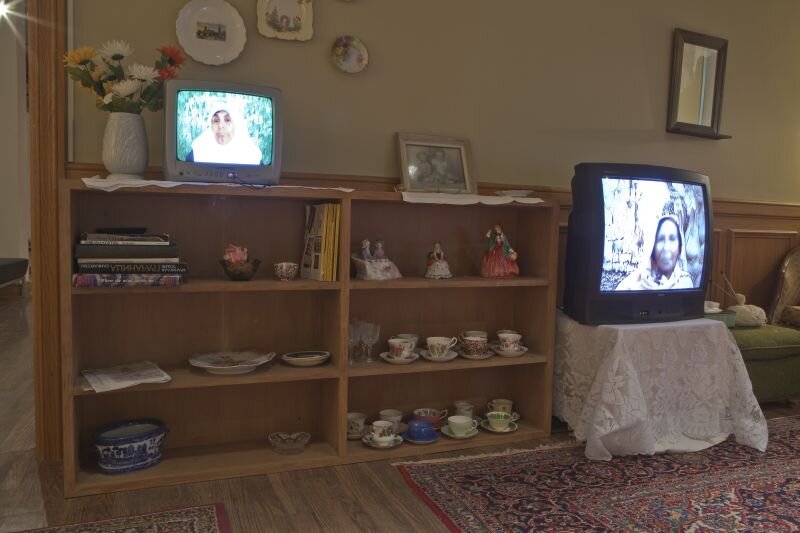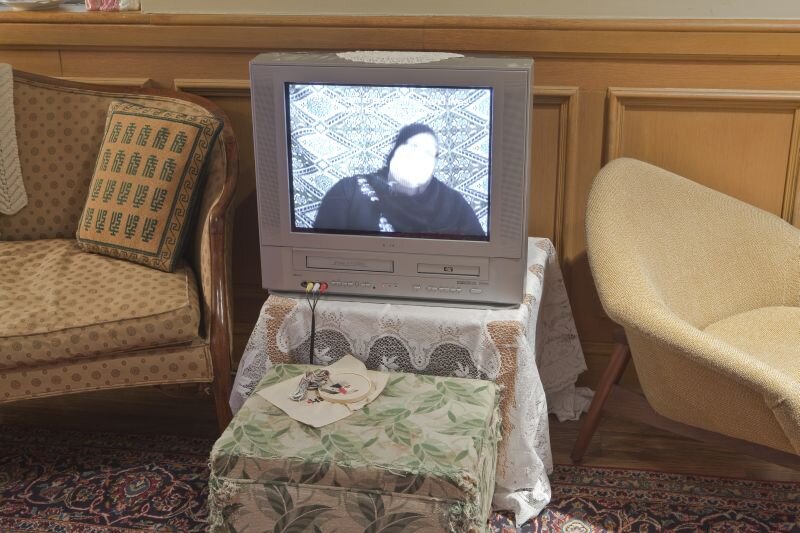Mieke Bal: Nothing is Missing
University of Toronto Art Centre, 15 Kings College Circle, Toronto
March 13–March 28, 2009
Sponsored by the Jackman Humanities Institute
Visitors are invited to sit in armchairs or on sofas, around them women speak to someone else. The interlocutors are people close to them, intimates, but the relationship with whom has been interrupted due to the migration of the women’s children: a grand-child she didn’t see grow up; a child-in-law she didn’t choose or approve of; the emigrated child; in one case, three generations. The intimacy, but sometimes a slight uneasiness, is characteristic of the situation. Sometimes you hear the other voice, sometimes not.
Communication unfolds between the woman and her relative, but due to the installation set-up, also between the women, and between the women and the visitors, all at once. The performative aspect on all these levels brings about a merging of these communications. The armchairs that can be moved or turned, as if one were visiting the women on the screen, concentrating on one or alternating their attention among the women.
The women are filmed in consistent close-up, as portraits. The relentlessly permanent image of their faces provides a modest monument to the women who suffered these profound losses. It also forces viewers to look these women in the face, in the eyes, and listen to what they have to say, in a language that is foreign, using expressions that seem strange, but in a discourse we can all, affectively, relate to.
Thus, this work pertains to “migratory Aesthetic”. There is no narrative voice; only the mothers do the talking. Any sense of tourism is carefully avoided: while intensely visual, the films show neither monumentality nor picturesque scenery; no spectacle is offered to gratify a desire for beauty; instead, the films engage intimately with the individuals concerned. All sound is diegetic. Indirectly, the installation constitutes a monument to those mothers who were left behind, bereft of those they most cherished.
Photo by Toni Hafkenscheid.
Photo by Toni Hafkenscheid.
Photo by Toni Hafkenscheid.
Photo by Toni Hafkenscheid.



